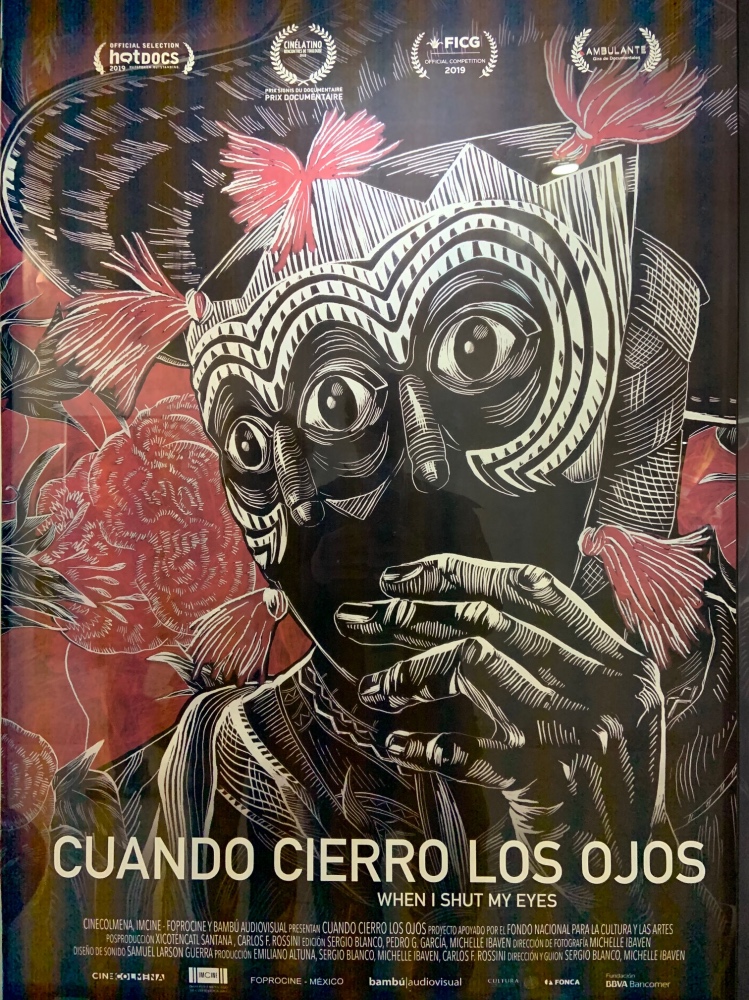
- Festivals
Oaxaca Film Festival : a Meeting Point for Filmmakers and Film Fans
Now in its 10th year, the Oaxaca Film Festival in Mexico has grown into an exciting event for movie lovers and filmmakers. During the opening ceremony, held at the Macedonio Alcalá Theater, filled to the rafters with participant and public, festival director Ramiz Adeeb Azar thanked recently deceased artist Francisco Toledo for hosting the first screenings at his cine club El Pochote (named after the sacred Mayan Tree of Life). He credited the growth of the festival to the talented filmmakers who come to Oaxaca year after year to share their art.
Four current feature films from around the world are presented every night of the seven-day festival at the Cinepolis multiplex, which is crowded with local moviegoers lining up for its 14 screens. After each festival presentation, the filmmakers engage with the audience in Q&A’s, conducted in English and Spanish.
Particularly moving this year were two documentaries set in rural villages near the city of Oaxaca. When I Shut My Eyes (Cuando cierro los ojos) tells the story of an indigenous woman, mother of two little girls, accused of having murdered her brother-in-law with a machete as he was attempting to rape her. In reality, it was her husband who killed his brother, but the wife spent nine years in jail before being released, because no translator was provided for her to explain to the judge what happened. A similar miscarriage of justice was inflicted on a man who was beaten up by local policemen until he confessed to a murder he did not commit. Marcelino is still serving a 30-year sentence.
Mexican co-director Michelle Ibaven explains that these two cases were chosen to represent 8,000 indigenous people held in jail without a proper trial because of a lack of translators from their native languages, in this case, Mazatec and Mixtec. Adela and her husband German were present after the screening to answer questions through translators.

Banda, directed by Carlos Armella, is about the creation of a youth brass band, “Luz del Rosario,” founded by a dedicated music teacher, where the young musicians improve their skills to such an extent as to be invited to participate in the Jalisco Jazz festival in Guadalajara. The 14-year-old trumpet player Brandon, now 19, was visibly moved after the screening, having seen this documentary for the first time at the festival premiere.
Among the numerous fiction features that screened at the festival, the most impressive title was perhaps The Short History of the Long Road, written and directed by Ani Simon-Kennedy, who grew up in Paris and currently lives in New York, and credits Agnès Varda, Mira Nair, and Julie Taymor as her inspiration. It has a similar theme as last year’s Leave No Trace by Debra Granik starring Ben Foster and Thomasin McKenzie. A teenage girl (pop star Sabrina Carpenter) has been traveling around the US with her father since she was born, living in an old van, and this nomadic kind of life is all she knows. When she finds herself alone and the van breaks down in Arizona, she is helped by a Latino immigrant mechanic (Danny Trejo). The director explains how she wanted to explore grief and was fascinated by the lifestyle of van dwellers.
As Executive director Ana Echeniche illustrated, what makes the Oaxaca film festival unique is its focus on connecting emerging filmmakers with film and television industry professionals, such as HBO, Turner, Viacom, and UTA, United Talent Agencies, by setting up pitch sessions and roundtables. There are seminars on subjects such as “Are film festivals still relevant in the current marketplace?” with panels of experts such as Larry Laboe, director of NFMLA (NewFilmmakers Los Angeles) offering valuable information to directors and screenwriters and answering their questions. Hundreds of short films are screened at 13 locations, followed by Q&As with their creators. Numerous social events, fueled by Mezcal and beer, allow festival participants from 40 countries to meet and exchange ideas.
As journalists of the Hollywood Foreign Press, it’s vital for our growth to spread the word about the goals of our association at various domestic and international film festivals, learn about other cultures through documentaries about local issues, meet emerging filmmakers and encourage them to submit their films for Golden Globe consideration.

